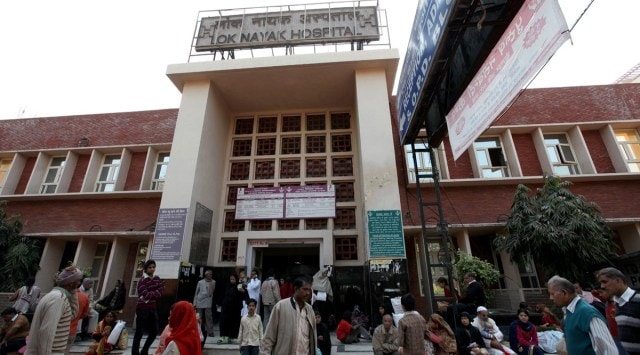Across Delhi govt hospitals, audit to check prescriptions
Although not strictly enforced, by law a drug store cannot substitute the brand of medicine prescribed by a doctor with another brand with the same active ingredients.
 A sample of prescriptions will be analysed through the month to check if it provides complete patient data, whether it is legible, and whether the generic names of medicines are written. (File)
A sample of prescriptions will be analysed through the month to check if it provides complete patient data, whether it is legible, and whether the generic names of medicines are written. (File)To ensure rational use of medicines and quality care, the Delhi government will start conducting a prescription audit across its hospitals, according to officials in the know of the matter. A sample of prescriptions will be analysed through the month to check whether it provides complete patient data, whether it is legible, and whether the generic names of medicines are written.
Although not strictly enforced, by law a drug store cannot substitute the brand of medicine prescribed by a doctor with another brand with the same active ingredients.
The prescription audit will also look at whether a patient’s allergies to medicines are mentioned, whether drug-drug interactions have been checked for, and most importantly whether the hospital’s antibiotic policy is being followed. Hospitals usually have a policy on which antibiotics should be used as first line, second line, and third line treatment in order to ensure that they remain effective against pathogens.
Overuse of antibiotics can lead to the microbes adapting to become resistant to the drugs.
“This will be extremely useful because there are times when prescriptions are received with the wrong dose of medicines. There are also times when doctors ask the patient to continue their medicines, sometimes resulting in prolonged use of antibiotics,” said an official from Delhi government’s Lok Nayak hospital.
The exercise will help in catching these errors and ensuring that it doesn’t happen in the future, the official said.
A report on prescriptions from March being submitted by Lok Nayak hospital, where the OPD footfall has increased again after the pandemic to around 7,000 patients a day, shows that not even one prescription fulfilled all the criteria.
“Some of the prescriptions have the names and details of the patients missing or some are not written in capital letters as per the directions, but these are minor issues that will not lead to any harm. However, there are prescriptions that we have seen with wrong doses of medicines prescribed,” said a pharmacist from Lok Nayak hospital, on condition of anonymity.
The pharmacist said, “Using brand names of the medicines is also a very common practice. In some cases, we get the prescription corrected, in other cases we just give the unbranded medicines that we receive from the government supply.”
The prescriptions will be checked for parameters as per the health ministry’s quality control programme, such as whether OPD registration number is mentioned (this, along with patient’s name, age, and address usually comes printed on the prescription with most hospitals following computer-based registrations); whether the hand-writing is legible and in capital letters; whether the patient history and allergies are mentioned; whether the diagnosis is mentioned; whether the generic names of the drugs are mentioned and whether the medicine schedule and dose are clearly written; and whether antibiotics prescribed are as per the hospital policy.
The prescriptions will also be checked for whether they have mentioned follow-up advice and date, whether any investigations have been prescribed, and whether it has been signed.
The audit will also focus on things like what percentage of the medicines prescribed are available at the facility, what percentage of prescriptions have antibiotics, and average number of medicines prescribed.













